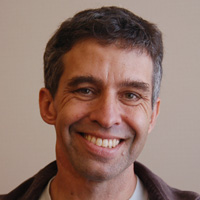On the night of July 19, 1941 in my family's ancestral village, 168 people were escorted to a barn. With the assistance of village leaders, each man, woman, and child was then shot in the head. Public documents stated simply that, "the Jews had been successfully emigrated to the East."
The rules of the universe and the bounds of time do not allow us to go back. These people and all their unborn progeny were extinguished on a single night and there is nothing we can now do to prevent it.
One carries on.
My Lutheran grandfather ran a small butcher shop with the help of a friend, Abram Schneider, who ran the kosher trade. After the murders, my grandmother had publicly protested, but was quickly silenced. "Would you like to talk with Abram?" people taunted her. "Perhaps we can arrange for a meeting."
Later, facing the Soviet invasion, my family fled. By then my grandmother was dead, my grandfather a widower with two orphan children. Lacking means, a neighboring farmer gave our family the wagon and the horses by which we would find escape. And if it were not for that man, and that horse and wagon, you would not be hearing this voice today.
